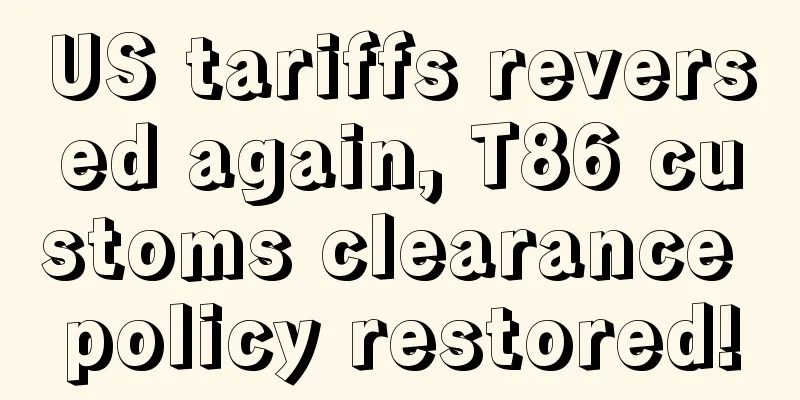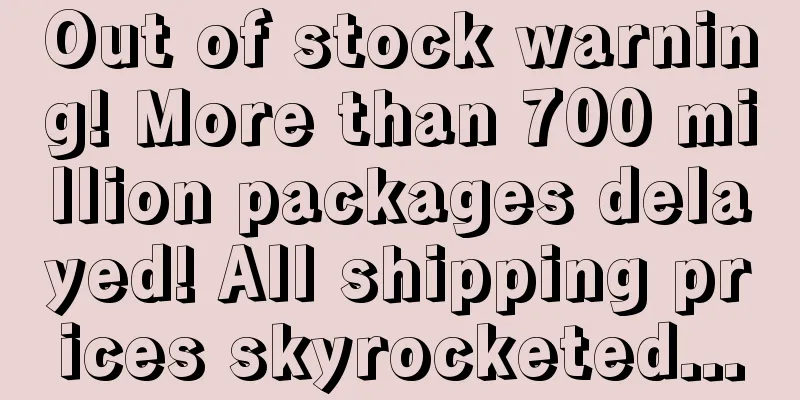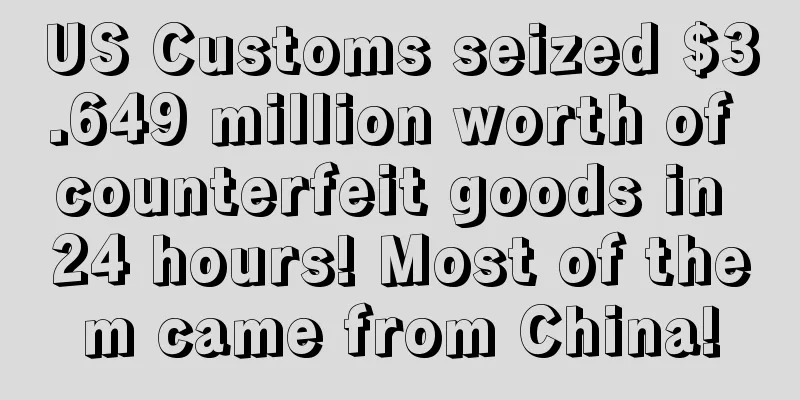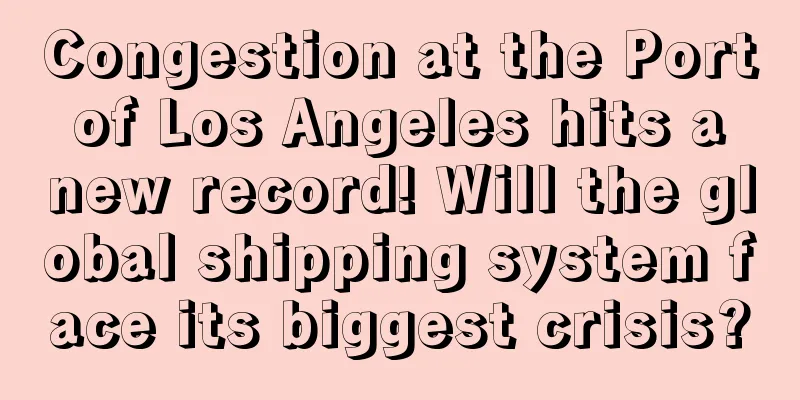US tariffs reversed again, T86 customs clearance policy restored!

|
However, Trump’s latest executive order was like a counterattack - on February 8, Trump announced that small packages from China would continue to enjoy duty-free treatment until the United States "establishes adequate systems to fully and promptly process and collect tariffs." This unexpected reversal has certainly given the cross-border industry a brief respite, but it has also made its predictions about future policy directions more confusing. It is learned that according to Reuters, US President Donald Trump announced on February 7 that the "minimum" tax-free policy for small packages from China (valued at less than US$800) would be restored. This means that under the T86 mode, packages worth less than US$800 will temporarily resume tax-free clearance, and the United States will temporarily no longer impose tariffs on these low-value goods. The reason behind this policy reversal may be that after Trump canceled the $800 "minimum" tariff exemption policy, a large number of low-value goods pouring into the United States needed to be formally cleared, which caused a sharp increase in the workload of the U.S. Customs, resulting in an "overwhelmed" situation. At the same time, the suspension and restart of the U.S. postal service also caused massive congestion in parcel clearance at New York's John F. Kennedy International Airport, and even parcels that had already paid tariffs could not be cleared in time. As a result, the Trump administration had to re-examine the effectiveness of this policy and decided to temporarily restore duty-free clearance to ease the pressure on the customs system. The U.S. Customs and Border Protection agency, which is responsible for inspecting e-commerce packages and collecting tariffs, held a meeting with logistics industry insiders on Thursday to discuss how to deal with the more than 1 million packages piling up at Kennedy Airport, according to people familiar with the matter. Currently, it is reported that customs has begun releasing these stranded packages, and Kennedy Airport receives a minimum of about 60 million e-commerce packages each year. Niall van de Wouw, chief airfreight officer at freight pricing platform Xeneta, noted that e-commerce giants like Temu and Shein move about 9,000 metric tons of cargo around the world every day, the equivalent of 88 fully loaded Boeing 777 freighters. But it is worth noting that Trump did not specify when the executive order would take effect. Whether the specific policy will be fully restored and how long it will last may require further official announcements. Some professional organizations predict that in the short term (1-3 months), the US government may take transitional measures to ensure that the customs processing capacity does not collapse. A full adjustment may take 6-12 months, or even longer, depending on the speed of the government and industry response. In fact, this is not the first time that the United States has changed its policies overnight. It is understood that according to a previous report by Xinhua News Agency, Trump signed an executive order on February 1 to impose a 25% tariff on goods imported from Mexico and Canada. The seemingly final decision took a sharp turn two days later. On February 3, Trump signed another executive order, announcing the suspension of the tariff measure and postponing its implementation until March 4, 2025. And this was just the beginning - within 24 hours (February 4th - February 5th), the United States Postal Service also staged a "suspend-resume" drama of accepting packages from China. It can be seen that the rapid changes in US trade policies have become commonplace. This pace of change has also brought a lot of uncertainty to cross-border e-commerce. Many sellers lamented: "The policy reversal is so smooth at the beginning of the year? Wait two days and it will probably be cancelled again. After all, the changes are too fast." Some sellers also said that they are in a hurry to place orders and want to airfreight a batch of goods before the policy is restored, but they are afraid that a "Cheng Yaojin" will appear halfway, and the air freight will be paid, and the tariffs will come again. It is really like playing on a balancing beam every day, "It's not right to send it, and it's not right not to send it", and the anxiety in my heart is self-evident. The wish of cross-border sellers now is simple and urgent: they hope there will be a clear time when the tax will start to be levied. Otherwise, the roller coaster-like policy changes will really make people breathless. However, some sellers have begun to see a "buffer period" in this round of changes - they intend to seize this time and adjust their pace. Some sellers said that although prices have risen, there is no need to rush to lower prices because prices in the United States will likely continue to rise. It is better to taste this sweetness first and seize the opportunity in front of you, which will give you an advantage in future fluctuations. Sellers, are you still ready to ship? What do you think about Trump's restoration of the $800 tax exemption policy? Feel free to share your views in the comments section~ |
>>: The US tariff policy has reversed many times! A group of sellers fled to this blue ocean
Recommend
Use the Golden Shopping Cart to boost your performance
Amazon sellers around the world are drooling over...
What is Boux Avenue? Boux Avenue Review
Boux Avenue is a company that specializes in women...
What is The Home Depot? The Home Depot Review
The Home Depot is the world's largest warehous...
What is PatPat? PatPat Review
PatPat was founded in 2014, focusing on maternal a...
What is Deep Ocean Logistics? Deep Ocean Logistics Review
Shenzhen Shenhuanhai Logistics Supply Chain Co., L...
North American online shopping statistics are out! Which categories are most worthy of attention?
The COVID-19 pandemic has boosted the development ...
Good news! Amazon waives some long-term storage fees!
As the global epidemic spreads, the number of conf...
What is Cyprus Customs? Cyprus Customs Review
Cyprus Customs is the taxation department of the C...
[Urgent] Amazon cuts off the brand accelerator! And launches a new plan that will never close stores?
Yesterday, a seller friend in our Damai Circle bro...
What is the solidarity surcharge? Solidarity surcharge review
Solidarity surcharge (Solidaritätszuschlag also kn...
It is said that Shein has contacted US banks and stock exchanges to discuss IPO matters
It is learned that on July 4, Reuters reported th...
What is Linker International? Linker International Review
Shanghai Linke International Freight Forwarding Co...
American Generation Z relies on social media to discover products, with TikTok and Instagram becoming the main channels
It is learned that on February 27, according to fo...
What is Casas Bahia? Casas Bahia Review
Casas Bahia is a Brazilian e-commerce platform wit...
The United States announced that it would impose additional 301 tariffs on Chinese products, raising the maximum tariff to 100%!
It is learned that on May 14, the United States re...









